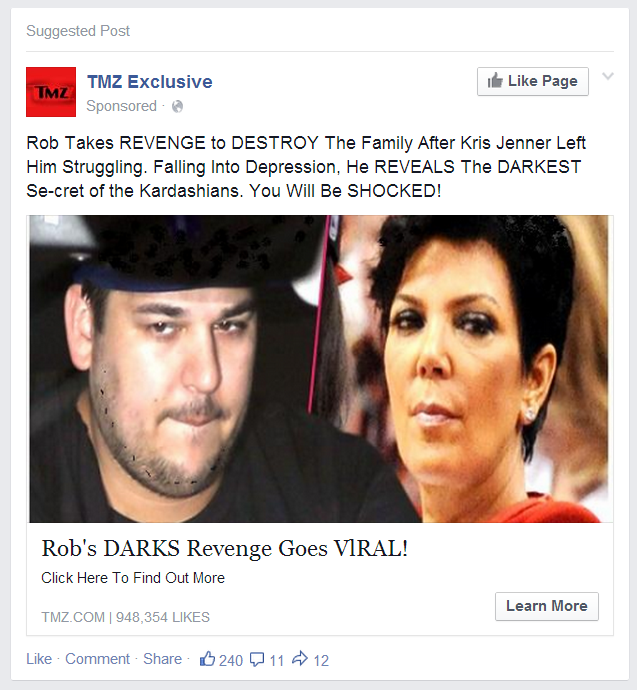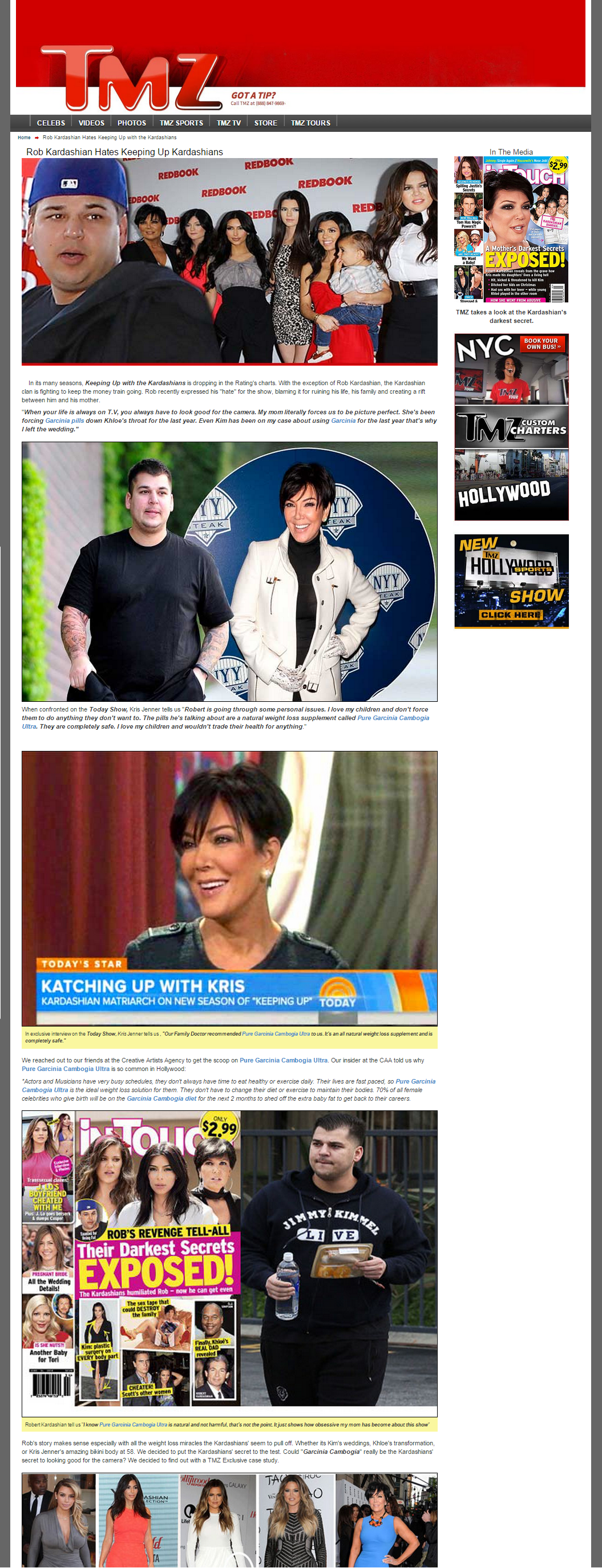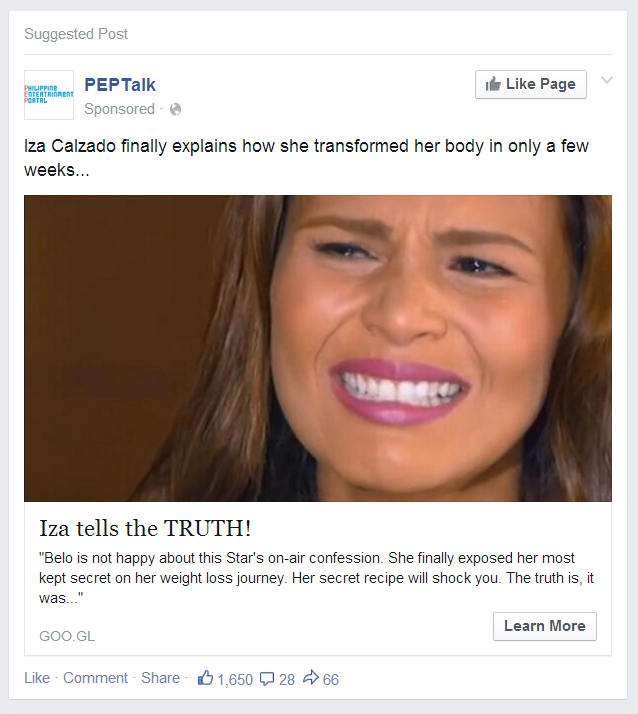[Updated, Dec 8, 2014, 8:21PM] We recently found another variant of this scam campaign, which appears to cater to a much wider audience now. This time, an account called TMZ Exclusive, which has been created just a couple of days after this blog is originally published. Below is a screenshot of the sponsored Facebook ad:

Clicking this leads to the following fake TMZ site:

click to enlarge
We were fortunate to access the folder where this page is hosted, and it appears that the content above is created exclusively for would-be PH clients.
Accessing the domain URL resolves to Google, unfortunately, thus preventing us from looking at what other files (assuming there are) are hosted on it. Doing a simple search gives an idea:
Going back, the Kardashian page contains links to a similar garcinia cambogia page we’ve featured in our original post below:

Original post:
We’ve featured scammy diet schemes on Malwarebytes Unpacked before, and in both instances, we talk about garcinia cambogia, a small, pumpkin-like fruit with properties that greatly help in losing weight. It’s a legitimate ingredient to several currently famous pill-based diet fads.
Regardless of where one stands in the effectiveness of the pills, real companies and distributors sell this product online, making it challenging for anyone to tell which are the fake ones, especially if links about the product are shared or promoted in social networks.
Recently, this diet spam, which comes in the form of a “Celebrity X reveals the secret to their diet!” sponsored ad, has been going around on Facebook for several days now, using the brand PEP.ph, a hugely popular celebrity news portal in the Philippines. As of this writing, PEPBuzz, the Facebook account these scammers created have already created the following ad post for people to share, comment, and click:

Bea Alonzo finally explains how she transformed her body in only a few weeks....Bea's Pill Bottles? Belo is not happy about this Star's on-air confession. She finally exposed her most kept secret on her weight loss journey. Her secret recipe will shock you. The truth is, it was...
Below is another variant of the above ad, this time from another account called PEPTalk:

Notice that both ad posts are linked to a Google-shortened (goo.gl) URL. This is an important bit because we can retrieve data regarding visitors to the links.
The PEPBuzz URL data shows that majority of those who clicked the link (94.51%) came from the Philippines. Facebook users from the United States, United Kingdom, Saudi Arabia, and Japan has had their share of clicks, too.
The PEPBuzz goo.gl URL leads to a page hosted on startdiet-mag[dot]com, which is created and registered less than three weeks ago.
On the other hand, the PEPTalk goo.gl URL leads to staplediet-mag[dot]com, which is also created and registered at the same time frame. Both pages resemble the header and general feel of the legitimate PEP.ph website to make visitors believe that the contents of these pages are legitimate. These are screenshots of the said sites, respectively:
![startdiet-mag[dot]com page](https://www.malwarebytes.com/wp-content/uploads/sites/2/2014/12/cambogia-bea.png)
startdiet-mag[dot]com page (click to enlarge)
![staplediet-mag[dot]com page](https://www.malwarebytes.com/wp-content/uploads/sites/2/2014/12/cambogia-iza.png)
staplediet-mag[dot]com page (click to enlarge)
The pages contain links to the following page where users are encouraged to register and buy the supposed garcinia cambogia pills:

We visited PEP.ph’s official website and did a search on anything about fake weight loss products, and we came across this post published in September of this year about a sponsored ad on Facebook from a sham brand called FitFirst, claiming that a well-known celebrity plastic surgeon fired an actress endorser after spilling her real slimming secrets.
Fake diet scammers have been using names of famous persons and news/magazine/celebrity sites to promote their “products” for as long as we can remember. CNN, TMZ, Women’s Health and Dr. Oz should come to mind (WH and Oz already addressed their “involvement” with fake endorsements, which you may want to check out here and here).
Unfortunately, they’ll continue using this strategy because it works. Influential names bring in sales, and this is what they’re exploiting. The best way users can protect themselves against this particular scam is to verify the legitimacy of claims by these ads. After determining that they’re fake, set Facebook to block future posts from the involved account/s and warn friends and family about them.
Jovi Umawing










